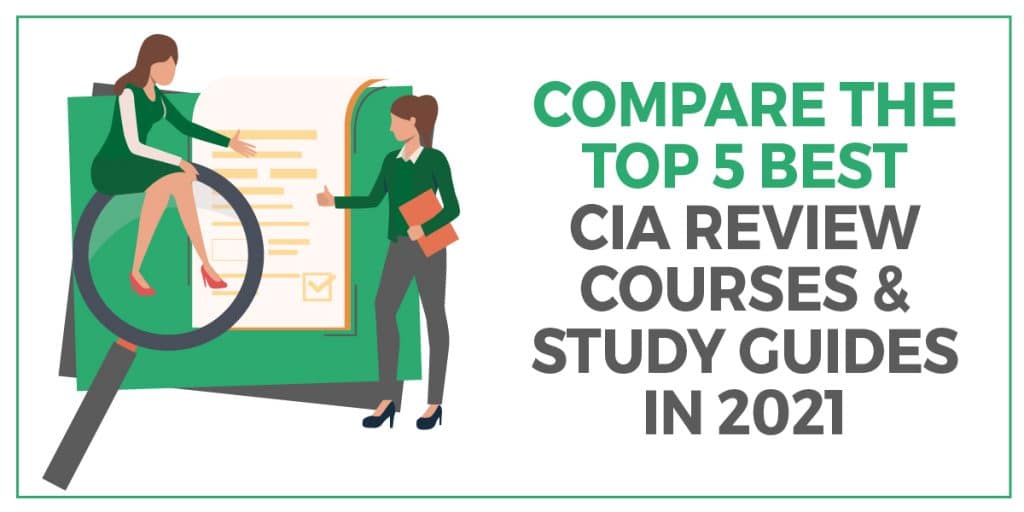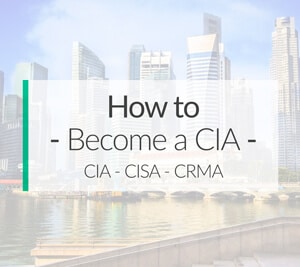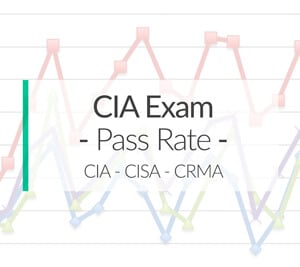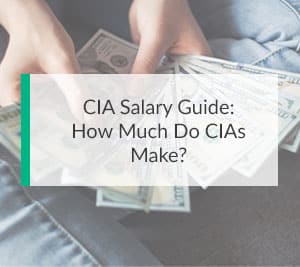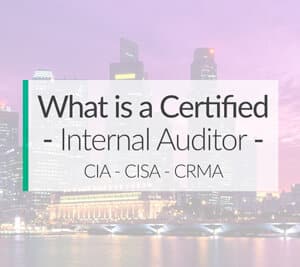
A CIA, or certified internal auditor, is an auditing professional. They’ve passed the CIA exam and fulfilled the educational and work experience requirements of the Institute of Internal Auditors (IIA). However, it shouldn’t be confused with the Central Intelligence Agency or CIA agents, even though they share an acronym.
The CIA designation is used all over the world across all business sectors and industries. It indicates that an auditor possesses the competence, skills, and experience to perform auditing procedures. Additionally, it shows that they can review and analyze financial statements. Finally, it proves that they can work with management to ensure proper internal controls to safeguard assets.
Ultimately, auditors have a very important role in business and in society. They manage verification systems to detect fraud, misuse of funds, and validate transactions. In other words, they make sure people are playing by the rules and financial reports accurately reflect reality.
Many changes have been made in defining what an auditor is and what an auditor is responsible for. However, their core objectives have remained the same. Therefore, let’s look at the audit profession, some internal auditor job descriptions, and a list of responsibilities.
What is a Certified Internal Auditor and What Does a CIA Do?
Certified Internal Auditors have many different career opportunities that they can take advantage of. Some include industry jobs and others include governmental and regulatory positions. Before we take a look at each CIA career path, let’s discuss a brief history of the Internal Audit profession.
A Brief History of the Internal Audit Profession
From ancient times where early civilizations used tiny dots and markings beside figures showing their daily transactions, to early Egyptians witnessing and certifying receipt of grains in their granaries, to ancient Rome’s “hearing of accounts” (the Latin word “auditus”, means “a hearing”), systems of verification have been present.
In the advent of progress and development of economic activities, new methods and techniques to ensure the safeguard of assets and detection of fraud were developed. The Industrial Revolution brought verification techniques from England to the United States.
Back in those days, audit techniques and methods were primarily focused on independent verification performed by external auditors (i.e., auditors outside an organization). As complexity and sophistication of business activities increased, external auditing was just not enough to address the growing audit universe (i.e., auditable activities) brought by the development of businesses and governments.
Only in the middle of the 20th century was internal auditing recognized as a separate accounting function. The Institute of Internal Auditors (IIA) was formed in 1941 with the intention of strengthening and standardizing the audit practice lead to stronger internal audit profession. The IIA paved the development of the internal audit profession, as we now know it.
How Do I Become a Certified Internal Auditor?
The IIA developed a training program to equip internal auditors with competency and professionalism. This is in order to address the current audit challenges and ensure that internal auditing contributes value to an entity. The CIA (Certified Internal Auditor) credential is the primary professional designation conferred by the Institute of Internal Auditors (IIA). Hence, certified individuals are those who have proven competency, meaningful experience, and professionalism in the auditing field.
Earning the CIA validates an internal auditor’s attributes and traits held for proper audit conduct. Furthermore, it proves their ability to provide quality, independent, and objective evaluations of entities’ financial and operational business activities. The ability to provide strategic, risk-based, value-adding audit drives demand for CIA’s in various fields.
However, before you can become a CIA, you have to pass the exam. The IIA administers a 3-part exam thoroughly covering concepts about internal audit and other related topics.
Prior to taking the certification exam, IIA sets minimum requirements for education, degree programs, experience, and professional character. Scrutiny to prove a candidate’s qualification is thoroughly performed by IIA before a candidate is allowed to take the exam.
After securing the certification, CIAs are required to continue professional education and development to maintain the designation.
What is a Certified Internal Auditor’s Job Description?
Bearing the designation, a CIA’s job holds the responsibility of performing systematic and objective audits that are in the best interest of entities’ overall and functional objectives. CIA’s are not only confined with auditing the reliability of financial records, but are also involved in auditing efficiency and effectiveness of management, compliance with regulations, and safeguard of assets.
In contrast with auditors focused on financial statement audits, CIAs take on a larger scope of providing services to help upper management mitigate risk and safeguard the company assets.
What Does a Certified Internal Auditor Do?
In other words, a CIA not only audits financial reports to make sure they are accurate and reflect reality; they also help management set up systems to prevent theft, loss, fraud, and damaged goods during the course of normal business operations.
What are some CIA Career Paths?
Where do certified internal auditors work?
Internal Auditing’s origin is traceable to the accounting profession, but as developments and requirements for diverse talents and skills arise, the internal audit has been open to various fields and expertise. A number of CIA’s from the legal, health care, engineering, logistics, and professions other than accounting is growing. CIA’s take on different roles in private industry, public accounting firms, and government.
Private and Public Commercial Entities
A CIA has a wide choice range in career paths in commercial entities. The ability to apply techniques and methods to understand relevant risks to specific companies and industries and the ability to develop a relevant audit plan gives an auditor the flexibility in selecting companies to join.
Regardless of whether a company is publicly or privately held, involved in health care or financial instruments, or a domestic or foreign company, the skill sets of the CIA are always relevant to such companies. IIA also provides specialty certifications that a CIA may obtain if he wants to further specialize to specific industries or functions.
Public Accounting Firms
Both in the assurance and advisory divisions of public accounting firms CIAs create impact. Due to the extensive understanding of internal control systems and in-depth knowledge of risk management, assurance roles in the public sector provides CIAs the edge in performing a risk-based audit that is efficient and effective. On the other hand, the said competency in internal controls and risk management are also of great value in advisory divisions of public accounting firms due to CIA’s understanding of what management’s objectives are.
Government and Other Government Agencies
CIA’s also have large contributions to government, government agencies, and other not-for-profit organizations. Strength in the knowledge of internal control and fraud risk indicators are vital to roles in the government and other agencies.
Will You Become a CIA?
The internal audit profession is a very young profession. And, as systems and organizations continue to improve and face of bigger risks, the more development is expected. The IIA’s CIA program is a response to the internal audit community’s problems in the past.
Whether you are planning on starting a career in audit or have been practicing internal audit for quite some time now, CIA certification is something that a person aiming for a rewarding and exciting career growth in audit needs to thoughtfully consider.

